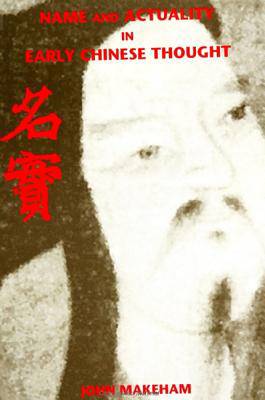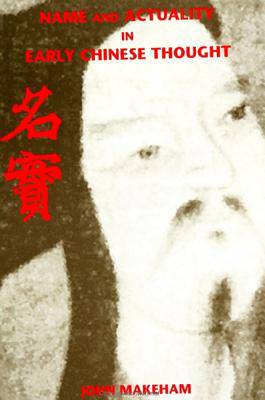
- Retrait gratuit dans votre magasin Club
- 7.000.000 titres dans notre catalogue
- Payer en toute sécurité
- Toujours un magasin près de chez vous
- Retrait gratuit dans votre magasin Club
- 7.000.000 titres dans notre catalogue
- Payer en toute sécurité
- Toujours un magasin près de chez vous
Description
This is the first Western study of the philosophy of Xu Gan (170-217), a Confucian thinker who lived at a nodal point in the history of Chinese thought, when Han scholasticism had become ossified and the creative and independent quality that characterized Wei-Jin thought was just emerging. As the theme of his study, Makeham develops an original and richly detailed account of ming shi, 'name and actuality, ' one of the key pairs of concepts in early Chinese thought. He shows how Xu Gan's understanding of the 'name and actuality' relationship was most immediately influenced by Xu Gan's understanding of why the Han dynasty had collapsed, yet had its roots in a tradition of discourse that spanned the classical period (circa 500-150 B.C.E.). In reconstructing the philosophical background of Xu Gan's understanding of the relationship between 'name and actuality, ' Makeham identifies two antithetical theories of naming in early Chinese thought--nominalist and correlative--a distinction that is as great as the Realist-Nominalist distinction of Western thought. He shows how Xu Gan's views on the name and actuality relationship were animated, on the one hand, by a rejection of nominalist theories of naming, and on the other hand, by a novel appropriation of correlative theories of naming. The study also analyzes two of the more immediate social and intellectual issues in the late Eastern Han (25-220) period that had prompted Xu Gan to discuss the name and actuality relationship: the ethos of the scholar-gentry (ming jiao) and Han approaches to classical scholarship. Makeham demonstrates how Xu Gan's critique of these matters is valuable not only as a late Han philosophical account of what had led to the demise of the 400-year-old Han dynasty, but also as a mode of conceptualizing that contributed to the new direction that philosophical thinking took in the third century C.E..
Spécifications
Parties prenantes
- Auteur(s) :
- Editeur:
Contenu
- Nombre de pages :
- 286
- Langue:
- Anglais
- Collection :
Caractéristiques
- EAN:
- 9780791419830
- Date de parution :
- 04-08-94
- Format:
- Livre relié
- Format numérique:
- Genaaid
- Poids :
- 571 g







